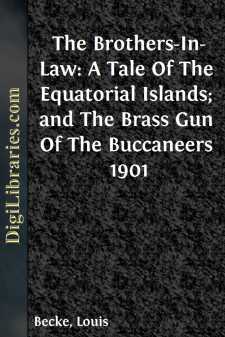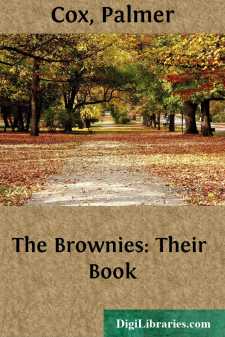Categories
- Antiques & Collectibles 13
- Architecture 36
- Art 48
- Bibles 22
- Biography & Autobiography 813
- Body, Mind & Spirit 142
- Business & Economics 28
- Children's Books 13
- Children's Fiction 10
- Computers 4
- Cooking 94
- Crafts & Hobbies 4
- Drama 346
- Education 46
- Family & Relationships 57
- Fiction 11828
- Games 19
- Gardening 17
- Health & Fitness 34
- History 1377
- House & Home 1
- Humor 147
- Juvenile Fiction 1873
- Juvenile Nonfiction 202
- Language Arts & Disciplines 88
- Law 16
- Literary Collections 686
- Literary Criticism 179
- Mathematics 13
- Medical 41
- Music 40
- Nature 179
- Non-Classifiable 1768
- Performing Arts 7
- Periodicals 1453
- Philosophy 64
- Photography 2
- Poetry 896
- Political Science 203
- Psychology 42
- Reference 154
- Religion 513
- Science 126
- Self-Help 84
- Social Science 81
- Sports & Recreation 34
- Study Aids 3
- Technology & Engineering 59
- Transportation 23
- Travel 463
- True Crime 29
Sort by:
by:
Louis Becke
"There," said Tâvita the teacher, pointing with his paddle to a long, narrow peninsula which stretched out into the shallow waters of the lagoon, "there, that is the place where the battle was fought. In those days a village of thirty houses or more stood there; now no one liveth there, and only sometimes do the people come here to gather cocoanuts." The White Man nodded....
more...
by:
Andrew Lang
Preface The stories in this Fairy Book come from all quarters of the world. For example, the adventures of 'Ball-Carrier and the Bad One' are told by Red Indian grandmothers to Red Indian children who never go to school, nor see pen and ink. 'The Bunyip' is known to even more uneducated little ones, running about with no clothes at all in the bush, in Australia. You may see...
more...
PREFACE The stories in this Fairy Book come from all quarters of the world. For example, the adventures of ‘Ball-Carrier and the Bad One’ are told by Red Indian grandmothers to Red Indian children who never go to school, nor see pen and ink. ‘The Bunyip’ is known to even more uneducated little ones, running about with no clothes at all in the bush, in Australia. You may see photographs of these...
more...
CHAPTER I BRETHREN OF THE ROAD Dismal in appearance, the painted sign over the mean doorway almost obliterated by time and weather, there was nothing attractive about the "Punch-Bowl" tavern in Clerkenwell. It was hidden away at the end of a narrow alley, making no effort to vaunt its existence to the world at large, and to many persons, even in the near neighbourhood, it was entirely unknown....
more...
by:
Herbert Quick
CHAPTER I A MAIDEN’S “HUMPH” A Farm-hand nodded in answer to a question asked him by Napoleon on the morning of Waterloo. The nod was false, or the emperor misunderstood—and Waterloo was lost. On the nod of a farm-hand rested the fate of Europe. This story may not be so important as the battle of Waterloo—and it may be. I think that Napoleon was sure to lose to Wellington sooner or later, and...
more...
I BROWN HIMSELF Brown was so tall and thin, and his study was so low and square, that the one in the other seemed a misfit. There was not much in the study. A few shelves of books—not all learned books by any means—three chairs, one of them a rocker cushioned in a cheerful red; a battered old desk; a broad and rather comfortable looking couch: this was nearly all the study's furniture. There...
more...
THE BROWNIES. A little girl sat sewing and crying on a garden seat. She had fair floating hair, which the breeze blew into her eyes, and between the cloud of hair, and the mist of tears, she could not see her work very clearly. She neither tied up her locks, nor dried her eyes, however; for when one is miserable, one may as well be completely so. "What is the matter?" said the Doctor, who was a...
more...
by:
Palmer Cox
THE BROWNIES AT SCHOOL. S Brownies rambled 'round one night,A country schoolhouse came in sight;And there they paused awhile to speakAbout the place, where through the weekThe scholars came, with smile or whine,Each morning at the stroke of nine."This is," said one, "the place, indeed,Where children come to write and read.'T is here, through rules and rods to suit,The young idea...
more...
by:
Lilian Whiting
CHAPTER I 1812-1833“Allons! after the Great Companions! and to belong to them!” “To know the universe itself as a road—as many roads—asroads for travelling souls.” The Most Exquisite Romance of Modern Life—Ancestry and Youth of Robert Browning—Love of Music—Formative Influences—The Fascination of Byron—A Home “Crammed with Books”—The Spell of...
more...
by:
S. C. Hall
CHAPTER I.With roomy decks, her guns of mighty strength,Whose low-laid mouths each mounting billow laves,Deep in her draught, and warlike in her length,She seems a sea wasp flying on the waves.Dryden.It was between the hours of ten and twelve on a fine night of February, in the year sixteen hundred and fifty-six, that three men moored a light skiff in a small bay, overshadowed by the heavy and sombre...
more...











